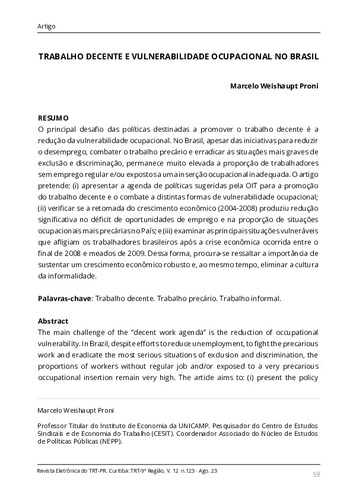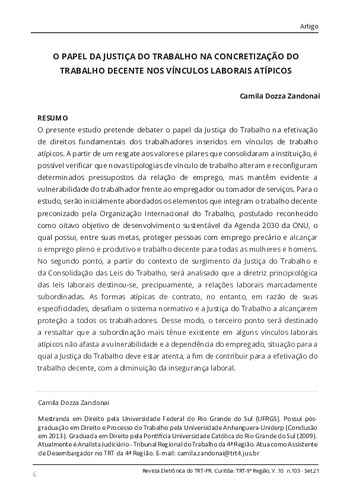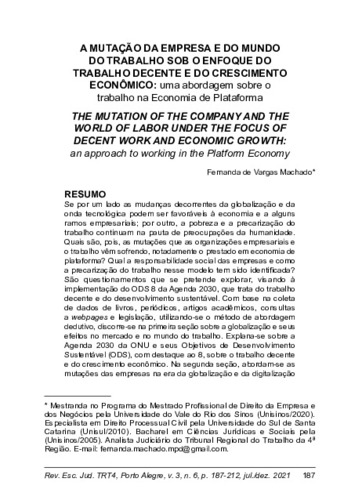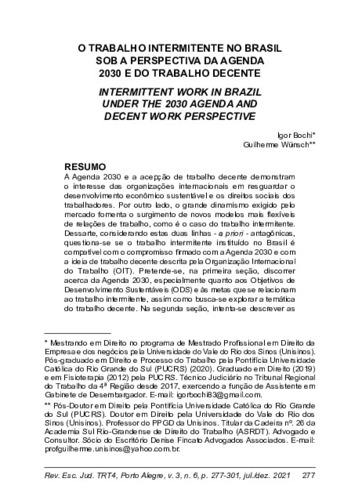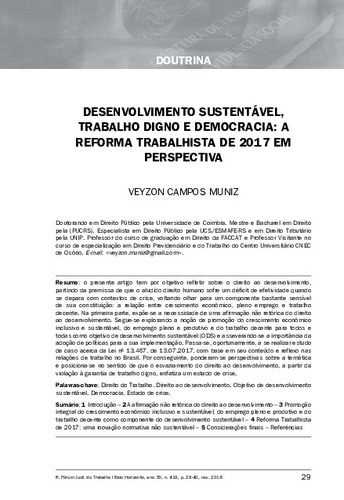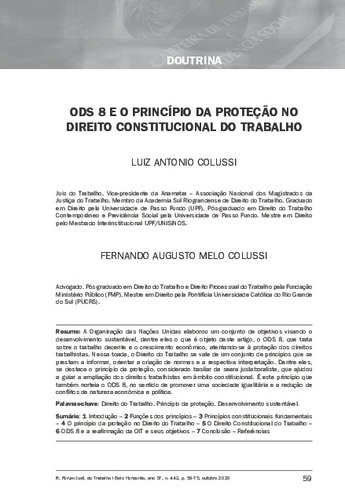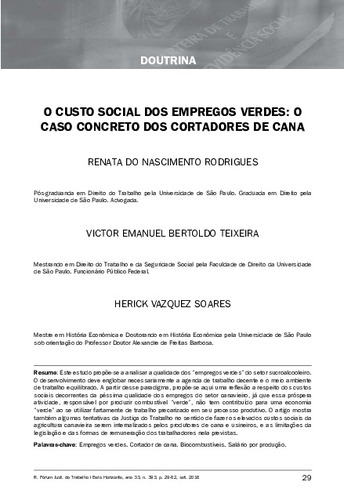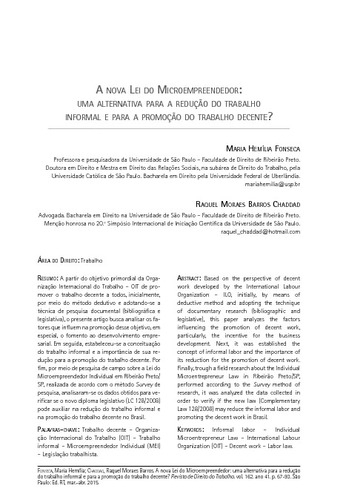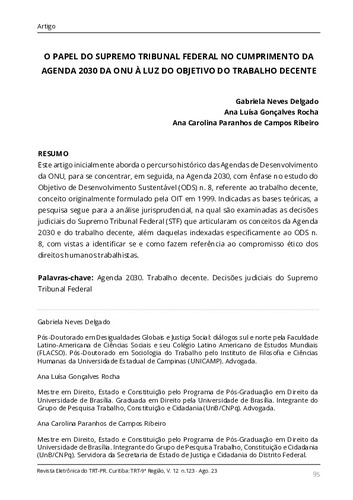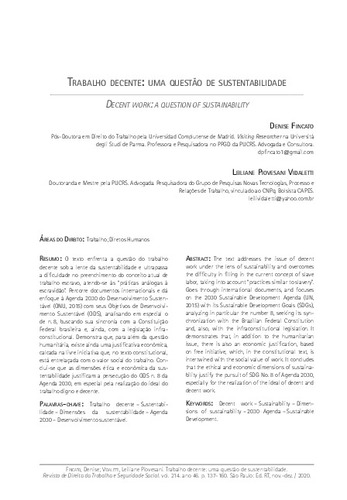Artigo de periódico
Trabalho decente e vulnerabilidade ocupacional no Brasil
| dc.contributor.author | Proni, Marcelo Weishaupt | |
| dc.date.accessioned | 2023-12-11T20:39:29Z | |
| dc.date.available | 2023-12-11T20:39:29Z | |
| dc.date.issued | 2023-08 | |
| dc.identifier.citation | PRONI, Marcelo Weishaupt. Trabalho decente e vulnerabilidade ocupacional no Brasil. Revista eletrônica [do] Tribunal Regional do Trabalho da 9ª Região, Curitiba, v. 12, n. 123, p. 59-94, ago. 2023. | pt_BR |
| dc.identifier.uri | https://hdl.handle.net/20.500.12178/225538 | |
| dc.description.abstract | [por] O principal desafio das políticas destinadas a promover o trabalho decente é a redução da vulnerabilidade ocupacional. No Brasil, apesar das iniciativas para reduzir o desemprego, combater o trabalho precário e erradicar as situações mais graves de exclusão e discriminação, permanece muito elevada a proporção de trabalhadores sem emprego regular e/ou expostos a uma inserção ocupacional inadequada. Pretende-se: (i) apresentar a agenda de políticas sugeridas pela OIT para a promoção do trabalho decente e o combate a distintas formas de vulnerabilidade ocupacional; (ii) verificar se a retomada do crescimento econômico (2004-2008) produziu redução significativa no déficit de oportunidades de emprego e na proporção de situações ocupacionais mais precárias no País; e (iii) examinar as principais situações vulneráveis que afligiam os trabalhadores brasileiros após a crise econômica ocorrida entre o final de 2008 e meados de 2009. Dessa forma, procura-se ressaltar a importância de sustentar um crescimento econômico robusto e, ao mesmo tempo, eliminar a cultura da informalidade. | pt_BR |
| dc.description.abstract | [eng] The main challenge of the "decent work agenda" is the reduction of occupational vulnerability. In Brazil, despite efforts to reduce unemployment, to fight the precarious work and eradicate the most serious situations of exclusion and discrimination, the proportions of workers without regular job and/or exposed to a very precarious occupational insertion remain very high. The article aims to: (i) present the policy agenda suggested by the ILO to promote decent work and fighting various forms of occupational vulnerability; (ii) verify if the economic recovery (2004-2008) produced a significant reduction in the job opportunities deficit and in the proportion of precarious works in the country; and (iii) examine the main types of vulnerability among Brazilian workers after the economic crises that occurred between late 2008 and mid 2009. In addition, we intend to highlight the importance of sustaining robust economic growth and, at the same time, eliminate the culture of informality. | pt_BR |
| dc.language.iso | pt_BR | pt_BR |
| dc.relation.ispartof | Revista eletrônica [do] Tribunal Regional do Trabalho da 9ª Região: vol. 12, n. 123 (ago. 2023) | pt_BR |
| dc.subject | Trabalho, Brasil | pt_BR |
| dc.subject | Trabalho decente, Brasil | pt_BR |
| dc.subject | Trabalho informal, Brasil | pt_BR |
| dc.subject | Precarização do trabalho, Brasil | pt_BR |
| dc.subject | Desemprego, Brasil | pt_BR |
| dc.subject | Mercado de trabalho, Brasil, 2003-2008 | pt_BR |
| dc.title | Trabalho decente e vulnerabilidade ocupacional no Brasil | pt_BR |
| dc.type.genre | Artigo de periódico | pt_BR |
| dc.identifier.rvbisys | 001017964 | |
| dc.relation.ispartoflink | https://hdl.handle.net/20.500.12178/224214 | pt_BR |
Coleção
-
Artigos9497


